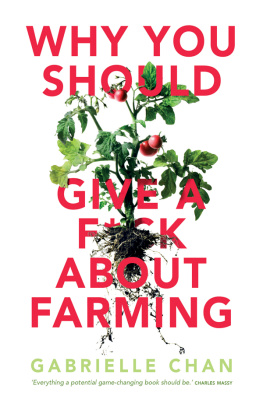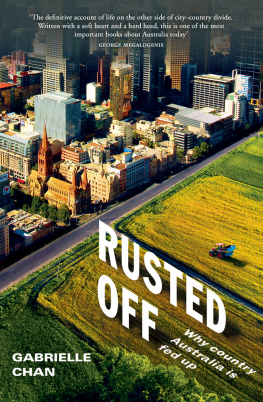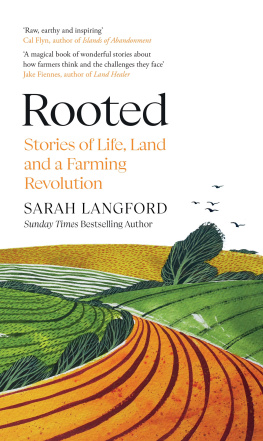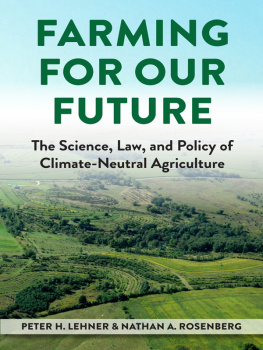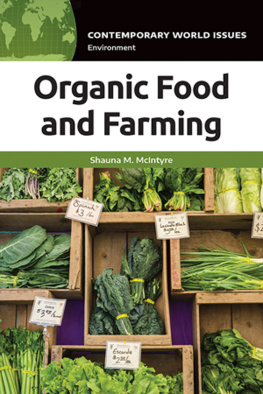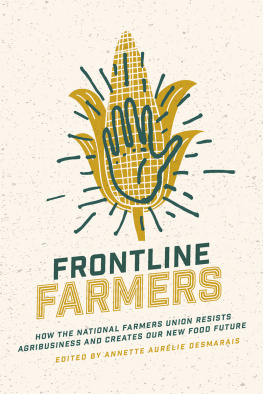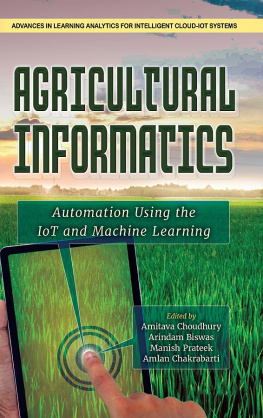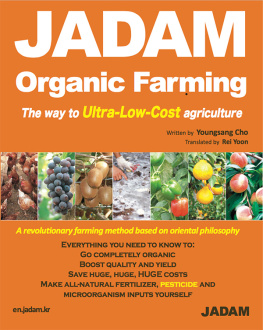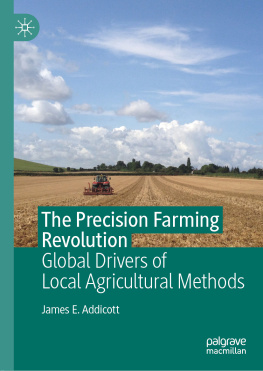About the Book
There is no farmers and others. If you eat or wear clothes, the decisions you make influence farming.
Eaters will be the ultimate arbiter of where and how food is grown and how the land is cared for... We all have a stake in the future of food and farming. I am going to show you why.
Farming sits at the intersection of the worlds biggest challenges around climate change, soil, water, energy, natural disasters and zoonotic diseases. Yet Australia has no national food policy. No national agriculture strategy. Our water policy is close to the Hunger Games. People with means can shop at farmers markets and order brunch by the provenance of their eggs, bacon, butter, tomatoes and greens. But do they really understand the trade-offs required to grow it?
In this book Gabrielle Chan examines the past, present and future of farming with her characteristically forensic eye. She lays out how our nation, its leaders, farmers and eaters can usher in new ways for us to work and live on our unique and precious land. We must forge a new social contract if we are to grow healthy food on a thriving landscape, while mitigating climate and biodiversity loss.
This important book will change your thinking about food, farming and how you eat.
INTRODUCTION
If you had told me thirty years ago that I would be moved to write a book in my fifty-fifth year about farming, I would have said you were barking mad. I literally didnt give a stuff about farming. I was an inner-city journalist who grew up in the middle of Sydney. Farmers were out there *she gestures* a long way away from any substantial action worth knowing about. Farmers were the remnants of a quaint occupation that Australia used to rely on. Something about a sheeps back. I knew they grew wheat and beef. What I did not think about was the connection with the bread in the toaster or the steak in the fridge. Sure, farmers were rolled out any time we wanted to make a statement about Australian identity, but I didnt know any. They just werent relevant to us, the vast majority in the city. We talked about them when there was another drought, though I cant remember seeing them on television much maybe the farmer look-alike in the Sydney Olympic opening ceremony riding a horse, but that was about it. Farming had nothing to do with my life and that was fine by me.
And then I met The Farmer. I suppose you could fall in love with someone and hate their occupation. I didnt; I became thoroughly fascinated by The Farmers job. As a committed eater, who wouldnt love a food grower? But, as you can imagine, I had some preconceptions. My journalism started under the HawkeKeating Labor government of the 1980s and my political writing started in the 1990s, at the beginning of the recession Australia had to have. Long-standing industries were being decimated. The death of the manufacturing industry was showing me in practice concepts like structural unemployment and inflation, which had previously been just theories in Year 12 economics. I didnt, however, take much notice of the structural adjustments going on in farming. I was vaguely aware of agriculture, but it didnt intrude into what I used to think were the exciting parts of politics, like leadership spills or factional intrigue.
It just gets so much more personal when your livelihood depends on it. The Farmers mixed broadacre farm is a commercial-sized operation in southern New South Wales, which primarily grows sheep and wheat. It is a family farm, bought four generations ago when the large squatter blocks were carved up during one of the land reform periods. The squatters had taken it from the Wiradjuri people, who have lived here for tens of thousands of years. The descendants of those first inhabitants continue to live here and the traces their ancestors left on the land are unobtrusive but unmistakeable.
The way Indigenous people fed themselves, the way they survived and thrived, was underpinned by their system of encouraging the foods they prized, and sculpting land for their long-term use. Landscape was embedded in foundational and spiritual beliefs, while intimately woven with life-giving food. The peoples mark was left on the terrain, but land was considered neither separate nor outside of the people.
I was grafted onto a farming culture that has European roots; whose development was based on an industrial model from the get-go. The colonial leaders first job was to feed the settlement, then to export the excess to help feed England, the mother country. Farmers were encouraged and protected in Australia, as they still are in many countries. Land was bestowed, stolen or bought, its bounty was for taking and its capacity considered infinite. Like a rubber band, we thought it could stretch without breaking because that was the economic imperative. To feed people.

So it wasnt my plan to transplant myself from a city to a country culture on a mid-sized traditional farm, but life has a habit of getting in the way of plans. To be clear, I am a journalist, not a farmer. And I do want to make that clear the farm enterprise belongs to The Farmer. I dont have an agricultural degree. I am not like a lot of women who are farmers in their own right, yet only recently recognised. Hell, I dont even do the books. Its not my thing. I dont work the farm day to day because I write.
We did try to work together when the kids were little, but it didnt turn out very well. Early in our marriage, The Farmer suggested I climb up a rickety ladder into an old concrete silo to shovel out some mouldy wheat in the bottom so he could refill it. He suggested that, because the ladder was rickety, and a little bit rusty, TBH, it would be better for me, as a lighter person, to do it. I did not want to appear a scaredy-cat or a shirker, the worst thing you can be around here, so I climbed in. I was asked to move the grain out of the tiny opening about a foot up from the base of the silo. It was a stinky operation and The Farmer soon discovered what it was to be married to an annoying newspaper journalist. As he stood outside the tiny opening, shovelling the grain away from the silo, my live commentary involved a soliloquy on the inefficiency of the system, the stupidity of old flat-bottom silos, ten things he could do to improve the operation, the danger of mould to an allergy sufferer like me, and scattergun questioning on how much else of his infrastructure was this outdated. I could only hear mumbling, punctuated by Jesus Christ and promises to do it himself next time.
Suffice to say, we are very independent-minded people. I dont run The Farmers operation and he doesnt write my books. But somewhere in the last twenty-five years of living on a farm, and increasingly reporting on rural issues, I started to question the economic agenda that was set in train by the HawkeKeating and Howard governments in those pivotal decades. Australia, like many countries around the world, was outsourcing what it could not do for the cheapest possible price. But how was this going to work for food?
I decided to look at this farming caper that I had been living alongside for all these years. I wanted to understand how it came to be, and I discovered that by pulling a thread on a farm, I was quickly taken to foundational philosophical questions about the way we live and how we want to organise our communities, and society as a whole. Farming remains as central to the questions of humanity and our future as it ever was. We just dont think about it that much because we think we have solved that food problem a long time ago and there are far more urgent questions to get on with.

